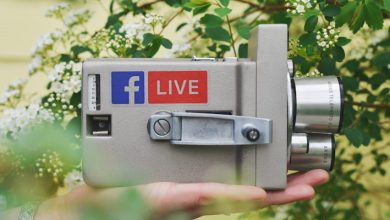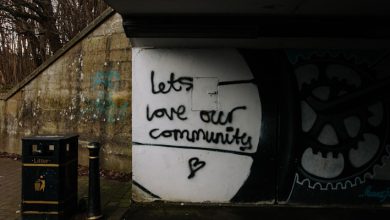Exploring Music NFTs: A New Frontier for Artists

- Understanding the concept of Music NFTs
- How Music NFTs are revolutionizing the music industry
- Benefits and challenges of using NFTs for musicians
- Exploring the potential of Music NFTs for independent artists
- Key players in the Music NFTs ecosystem
- The future of Music NFTs: Trends and predictions
Understanding the concept of Music NFTs
Music NFTs, or non-fungible tokens, have been making waves in the music industry as a new way for artists to monetize their work and connect with fans. These digital assets represent ownership of a specific piece of music or related content, allowing creators to sell them to collectors on blockchain platforms. By tokenizing their music, artists can create scarcity and exclusivity, making their work more valuable to fans.
One of the key benefits of Music NFTs is that they provide a way for artists to receive direct support from their fans, cutting out intermediaries like record labels or streaming services. This direct-to-fan model can result in higher profits for artists and a closer relationship with their audience. Additionally, NFTs can be programmed with smart contracts that automatically pay out royalties to artists whenever their music is sold or streamed, ensuring that they are fairly compensated for their work.
Furthermore, Music NFTs can also serve as a form of digital merchandise, allowing fans to own a unique piece of music history and support their favorite artists in a tangible way. Collectors can buy, sell, and trade these digital assets on NFT marketplaces, creating a new ecosystem for music discovery and investment. As the popularity of NFTs continues to grow, more artists are exploring this innovative technology as a means of reaching new audiences and generating revenue in the digital age.
How Music NFTs are revolutionizing the music industry
Music NFTs are causing a seismic shift in the music industry, offering artists a new way to connect with their fans and monetize their work like never before. By tokenizing their music, artists can create unique digital assets that represent ownership of their songs or albums. This allows them to sell these NFTs directly to fans, cutting out the middleman and giving them more control over their own music.
One of the key advantages of Music NFTs is that they can provide artists with a new revenue stream. Instead of relying solely on streaming platforms or record labels for income, artists can now generate revenue by selling their NFTs directly to fans. This can help them to recoup production costs, fund future projects, or even make a living solely from their music.
Furthermore, Music NFTs can also help to foster a closer relationship between artists and their fans. By owning a token that represents a piece of their favorite artist’s work, fans can feel a sense of connection and support for the artist. This can lead to increased engagement, loyalty, and a sense of exclusivity for fans who own these unique digital assets.
Benefits and challenges of using NFTs for musicians
There are numerous benefits and challenges associated with the use of NFTs for musicians. NFTs provide artists with a unique opportunity to tokenize their music and sell it as digital assets, allowing them to gain more control over their work and potentially earn more revenue.
One of the main benefits of using NFTs for musicians is the ability to create a direct and decentralized connection with their fans. By selling NFTs, artists can engage directly with their audience and create a sense of exclusivity around their music.
However, there are also challenges that musicians may face when using NFTs. One challenge is the environmental impact of NFTs, as the process of minting NFTs can consume a significant amount of energy.
Another challenge is the lack of regulation in the NFT market, which can make it difficult for musicians to navigate and protect their rights. Additionally, the volatile nature of the cryptocurrency market can pose risks for artists who choose to accept payment in digital currencies.
Despite these challenges, many musicians are still exploring the potential of NFTs as a new way to connect with fans and monetize their music. As the technology continues to evolve, it will be important for artists to carefully consider the benefits and challenges of using NFTs in their music careers.
Exploring the potential of Music NFTs for independent artists
Exploring the potential of Music NFTs for independent artists can open up a whole new world of opportunities in the digital age. Non-fungible tokens, or NFTs, have gained immense popularity in recent years as a way for artists to tokenize their work and sell it on the blockchain. Music NFTs work on the same principle, allowing musicians to create unique digital assets that can be bought, sold, and traded on various platforms.
For independent artists, Music NFTs offer a decentralized way to connect with their fans and monetize their music directly. By tokenizing their songs, albums, or even exclusive content like backstage footage or limited edition merchandise, artists can create a new revenue stream outside of traditional music sales and streaming platforms. This can be especially beneficial for artists who struggle to make a living from their music alone.
Moreover, Music NFTs can also help artists build a stronger connection with their fanbase. By offering exclusive NFTs as part of fan experiences or rewards for supporting their music, artists can create a sense of community and engagement that goes beyond just listening to their songs. Fans can own a piece of their favorite artist’s work in a tangible, digital form, creating a unique and personal connection that can drive loyalty and support.
Key players in the Music NFTs ecosystem
In the Music NFTs ecosystem, there are several key players that are shaping the landscape and driving innovation in the industry. These players play a crucial role in helping artists tokenize their music and connect with their fans in new and exciting ways.
One of the key players in the Music NFTs ecosystem is the artists themselves. By leveraging NFT technology, artists can create unique digital assets that represent their music and offer them to fans as limited edition collectibles. This allows artists to monetize their work in a new and innovative way, while also building a stronger connection with their audience.
Another important player in the Music NFTs ecosystem is the NFT platforms that facilitate the buying and selling of music NFTs. These platforms provide a marketplace for artists to list their NFTs and for fans to discover and purchase them. Some popular NFT platforms for music include Rarible, OpenSea, and Foundation.
Additionally, collectors and fans are key players in the Music NFTs ecosystem. Collectors are driving demand for music NFTs by purchasing and trading them as digital assets. Fans, on the other hand, are able to support their favorite artists by purchasing their NFTs and participating in exclusive experiences, such as access to unreleased music or virtual meet-and-greets.
Overall, the Music NFTs ecosystem is a dynamic and rapidly evolving space that is redefining the way artists interact with their fans and monetize their music. By understanding the key players in this ecosystem and how they are shaping the industry, artists can take advantage of this new frontier to unlock new opportunities for creativity and financial success.
The future of Music NFTs: Trends and predictions
As we look ahead to the future of Music NFTs, it’s clear that this innovative technology is here to stay. Artists and creators are increasingly embracing NFTs as a new way to connect with fans and monetize their work. One trend we can expect to see is the continued growth of NFT marketplaces dedicated specifically to music. These platforms will provide a space for musicians to showcase their NFTs and reach a wider audience.
Another prediction for the future of Music NFTs is the rise of collaborations between artists and other creators. We can anticipate more musicians teaming up with visual artists, designers, and even influencers to create unique NFT projects that combine music with visual art and other forms of content. These collaborations will not only expand the reach of NFTs but also introduce new audiences to the world of digital collectibles.
Furthermore, as the technology behind NFTs continues to evolve, we can expect to see improvements in the user experience and the overall functionality of NFT platforms. This will make it easier for artists to mint, sell, and manage their NFTs, ultimately making the process more accessible to a wider range of creators.



